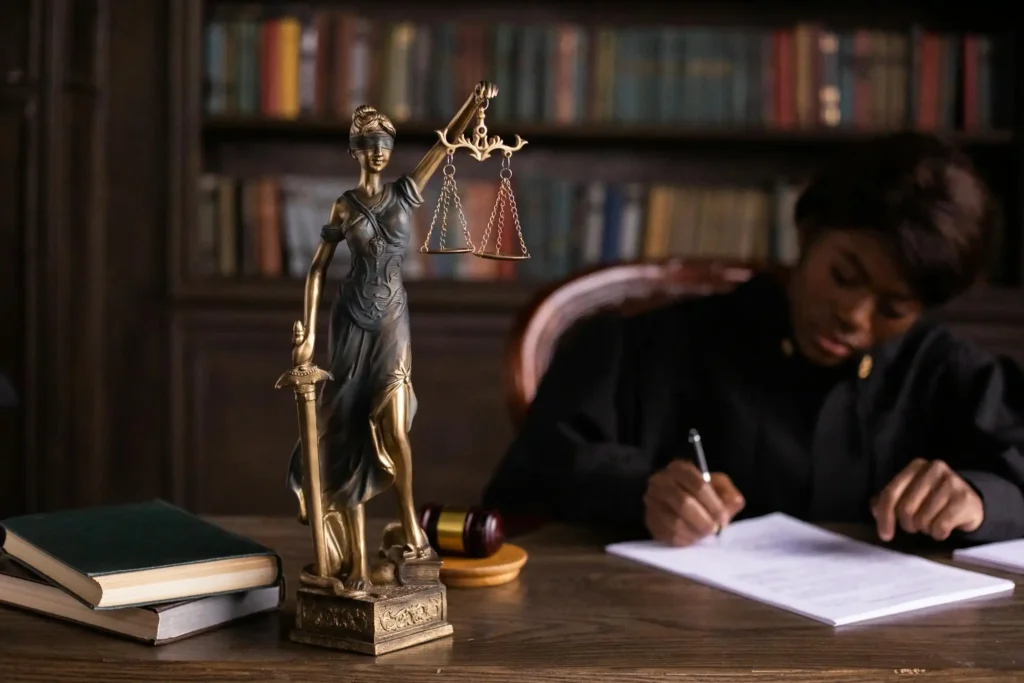When your lawyer seems uninterested in your case, fails to return phone calls, or misses important deadlines, you might feel trapped and powerless.
Many people say, “My lawyer is not fighting for me,” but don’t know what to do next. Understanding why lawyers sometimes fail to protect their clients’ best interests and knowing your options for unethical behavior can help you take control of your legal situation.
Contents
Why Would Your Lawyer Not Fight For You?
Your lawyer has one main job: to protect your legal rights. So when they don’t fight for you, something has gone seriously wrong. Several issues could explain their poor performance.
They May Already Have Many Cases
Many lawyers take on more cases than they can handle. A lawyer who serves too many clients at once won’t give your case the attention it needs. They might skip important steps in your case, miss deadlines, or show up unprepared for court dates.
A typical lawyer handles between 20 and 100 cases at any time, depending on their practice area. This heavy workload forces them to split their time between all their clients.
If your lawyer seems rushed during meetings, often forgets details about your case, or takes days to return your calls, they might be juggling too many cases.
This problem often happens with both private lawyers and public defenders. Private lawyers sometimes accept too many clients because they want to make more money. Public defenders face this issue because the system gives them more cases than they can reasonably handle.
Note that a busy lawyer isn’t automatically a bad lawyer. The real problem starts when they accept more work than they can do well.
A good lawyer knows their limits and will turn down new cases when they’re at capacity. If your lawyer took your case when they were already overloaded, they’ve done you a disservice.
They May Not Be Happy With Their Payment

Another reason your lawyer might not fight for you involves payment issues. Law firms are businesses, and like any business, they need money to keep running. When clients fall behind on payments or question their bills, some lawyers respond by putting in less effort.
A lawyer working for an hourly rate might slow down your case if you’ve missed payments. They could stop answering your calls promptly or delay important paperwork until you catch up on their fees.
Some lawyers even hold your case file hostage until you pay what you owe. A little extreme, yes, but it does happen.
Payment problems happen with flat-fee arrangements as well. Your lawyer might feel they quoted too low for your case, especially if unexpected complications pop up. Instead of having an honest talk about adjusting their fee, they might just do the bare minimum work to justify their original quote.
These money issues create a tough situation for both sides. The lawyer needs to get paid for their time and expertise. You need proper legal representation for your case. When money gets in the way, the quality of your legal service often suffers.
Where Does the Law Stand In This
Lawyers should handle payment disputes professionally. They must give you reasonable notice before stopping work on your case.
They also need to protect your interests even when you owe them money. If your lawyer cuts corners just because of payment issues, they’re breaking their professional duties to you, and you can legally take a stand. We’ll talk more about this in a bit.
They Are Simply Not Good Enough

Sometimes, a lawyer’s poor performance isn’t due to workload or money issues. The simple truth is that some lawyers lack the skills to handle your case properly. This problem shows up most often with newer lawyers who haven’t gained enough experience yet.
Law school teaches students how to understand and practice law, but it doesn’t fully prepare them for real-world legal work.
New lawyers need time to learn crucial skills like negotiating with opposing counsel, speaking confidently in court, or managing complex cases. If your lawyer seems unsure or hesitant, they might still be learning these essential skills.
Your case might also be too complicated for your lawyer’s current skill level. A lawyer who handles simple contracts well might struggle with a complex business dispute. Someone who excels at basic criminal cases might not know how to defend you against serious federal charges.
Good lawyers know their limits and turn down cases beyond their abilities. Less experienced ones might take cases they can’t handle properly.
What Should You Do When Your Lawyer Isn’t Fighting for You?
When your lawyer doesn’t fight for your legal rights, you need to take action. The attorney-client relationship forms the foundation of our legal system, and your lawyer has professional responsibilities they must uphold.
You have two main options: talk to your lawyer about the problems or end the relationship entirely. Here’s how it goes:
Confront Them About It
A direct conversation often repairs a troubled client-attorney relationship. Schedule a meeting at their law firm and explain your concerns calmly. Show them specific examples of when they fell short of their professional conduct standards.
Maybe they missed important deadlines, ignored your calls, or seemed unprepared in court. Your lawyer might not realize how their actions affect your case, or they might explain situations you misunderstood.
During this conversation, you should listen to their side as well. A good lawyer will honor their attorney’s responsibility by addressing your concerns professionally and suggesting solutions.
They might offer to spend more time on your case, assign additional staff to help, or improve their communication with you. If your lawyer fails to respond appropriately or dismisses your concerns, this reveals deeper problems in your legal services arrangement.
Fire Them
Sometimes, firing your lawyer becomes the only solution. This usually happens after you’ve tried fixing the attorney-client relationship through conversation, and nothing has improved.
Consider ending things if your attorney ignores you, keeps making mistakes, won’t communicate clearly, or shows no interest in doing his or her job properly. A lawyer who won’t change after a serious discussion likely never will.
Firing a lawyer requires careful planning. You should start by finding a new law firm that can handle your case. Ask them to review your situation before ending your current legal services. Make sure you get all your case files and documents from your old lawyer to your new lawyer/
You might also want to contact your state’s bar association if your lawyer’s conduct was particularly poor. Check if you need court permission to change lawyers, especially during an active lawsuit.
Your rights in the legal system matter too much to stick with a lawyer who won’t fight for you. Start with an honest conversation about their professional conduct, but don’t hesitate to find new representation if your lawyer fails to improve. The longer you wait to address these issues, the more your case might suffer.
Can You Sue Your Lawyer if They Don’t Do Their Job Properly?

Yes, you can sue your lawyer if they handle your legal issue improperly. This type of case is called legal malpractice, and it allows clients to get money back when their lawyer’s poor work hurts their case.
Legal malpractice cases require strong proof. You’ll need to show that your lawyer failed to meet basic professional standards. Missing deadlines, ignoring your phone calls, or losing important documents could qualify as malpractice.
Poor communication alone usually isn’t enough unless it seriously damages your case’s positive outcome.
A legal malpractice case must prove three main points:
- First, your lawyer failed to provide reasonable quality legal services.
- Second, their failure directly harmed your case.
- Third, this harm costs you money or damages you.
For example, if your personal injury lawyer missed a filing deadline and your case got dismissed, you might have a malpractice claim.
Most lawyers who handle malpractice cases offer a free initial consultation. During this meeting, they’ll review your situation and tell you if you have a solid case. Look for a lawyer with a proven track record in malpractice cases. They should communicate effectively and explain your legal rights clearly.
Getting a second opinion from another lawyer while your case is still active often prevents the need for a malpractice lawsuit.
A new lawyer might spot problems early enough to fix them before serious damage happens. They can also tell you if your current lawyer’s work falls below professional standards.
Malpractice cases take time and money. Many lawyers avoid taking them unless the evidence is very strong.
Your best protection is choosing a good lawyer from the start and addressing problems quickly when they come up. Watch for warning signs like missed deadlines, poor communication, or work that seems careless or rushed.
If you decide to sue your lawyer, document everything. Save emails, letters, and records of ignored phone calls. Keep copies of all case documents. Write down dates and details of any mistakes. The more evidence you have, the stronger your malpractice case becomes.
In the End
Legal representation shapes the outcome of your case, from minor disputes to serious criminal charges. Clear communication and dedication from your lawyer make all the difference.
If you’re stuck with a lawyer who won’t fight for you, don’t settle. Take action to protect your rights, either through an honest conversation with your current lawyer or finding a new attorney who will champion your cause.
Keep reading: What kind of lawyer do I need to sue a contractor?

